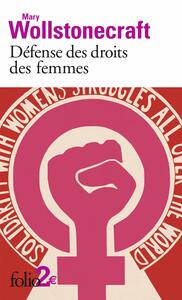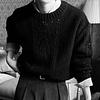You need to sign in or sign up before continuing.
Take a photo of a barcode or cover
This was a book that is on my "bucketlist' of books I have to read before I die. I'm glad I read it, it's a pleasant reminder of how far we have come.
Good stuff. It's surprising how much of this still needs to be addressed. The writing is pretty dense, but it's worth a look, at least.
“My own sex, I hope, will excuse me, if I treat them like rational creatures, instead of flattering their fascinating graces, and viewing them as if they were in a state of perpetual childhood, unable to stand alone.”
It’s 1792, and Mary Wollstonecraft is RAGING. Here she goes on the rampage, railing against Burke in an essay about the Rights of Men and tearing Rousseau (and society) a new one about the Rights of Women for, like, a novel-length diatribe. And it’s so hardcore. This is heavy metal.
Yes, it’s repetitive and overlong and grows tedious at time, and not everything translates perfectly to 21st century feminism, I’m not surprised. But man, someone resurrect Mary Wollstonecraft to fight the fight now? She’d have so much to say about the flaws of the modern beauty industry alone, I swear. Anyway, so much of what she says is radical and still way too relevant. She talks about equality in education and the fucked-up-ness of separating children and forcing girls to play with dolls and being raised to be “slaves” to their husbands, essentially weak simpering objects of lust designed “to please.” This is like that Barbie movie monologue but SO MUCH ANGRIER. In the background she finds time to talk class and consider the family structure and the problems of hereditary wealth and I’m so very interested in learning more about her life now. Also, like. Imagine being born Mary Shelley, and finding out your dead mother was this RADICAL ???? It’s so much to think about.
informative
inspiring
reflective
medium-paced
“I do not wish them [women] to have power over men; but over themselves.”
“Strengthen the female mind by enlarging it, and there will be an end to blind obedience.”
Mary Wollstonecraft presents a bold and thought-provoking critique of the societal norms and expectations that have long been placed on women. Drawing parallels with Enlightenment thinkers like Kant and Rousseau, Wollstonecraft diverges significantly, offering a sharp and courageous argument that women’s ability to develop critical thinking and reason is stunted by the societal pressures and infantilization they face. Her critique challenges the prevailing notion that women are inherently inferior or suited only for domestic roles, advocating for intellectual and moral development that benefits both women and society as a whole.
What stood out to me most in Wollstonecraft's writing was her unflinching focus on the systemic obstacles faced by women. From the idea that women should prioritize pleasing others over pursuing their own desires to the restrictive gender roles that limit autonomy and agency, she deconstructs the ways in which society discourages women from becoming fully realized individuals. She urges women to reject passive obedience and strive for true virtue, arguing that a society in which women are empowered to reason and make independent choices is ultimately more just and equitable.
Wollstonecraft’s work remains a seminal text in feminist philosophy, continuing to inspire generations of thinkers to challenge the status quo in pursuit of gender equality and women’s rights. Her message is timeless and resonates with a modern audience, calling for both individual empowerment and collective social change.
At the end of the day, she’s just a girl. But she was clearly a girl’s girl <3
“Strengthen the female mind by enlarging it, and there will be an end to blind obedience.”
Mary Wollstonecraft presents a bold and thought-provoking critique of the societal norms and expectations that have long been placed on women. Drawing parallels with Enlightenment thinkers like Kant and Rousseau, Wollstonecraft diverges significantly, offering a sharp and courageous argument that women’s ability to develop critical thinking and reason is stunted by the societal pressures and infantilization they face. Her critique challenges the prevailing notion that women are inherently inferior or suited only for domestic roles, advocating for intellectual and moral development that benefits both women and society as a whole.
What stood out to me most in Wollstonecraft's writing was her unflinching focus on the systemic obstacles faced by women. From the idea that women should prioritize pleasing others over pursuing their own desires to the restrictive gender roles that limit autonomy and agency, she deconstructs the ways in which society discourages women from becoming fully realized individuals. She urges women to reject passive obedience and strive for true virtue, arguing that a society in which women are empowered to reason and make independent choices is ultimately more just and equitable.
Wollstonecraft’s work remains a seminal text in feminist philosophy, continuing to inspire generations of thinkers to challenge the status quo in pursuit of gender equality and women’s rights. Her message is timeless and resonates with a modern audience, calling for both individual empowerment and collective social change.
At the end of the day, she’s just a girl. But she was clearly a girl’s girl <3
informative
reflective
slow-paced
YES i am counting the excerpts in my textbook as something for my reading challenge. yes i am. anyway I liked it
informative
inspiring
reflective
medium-paced
I've rated this 5/5 because it such an important book, which still resonates today. However, it is difficult to read, being written in the language of its time. Indeed, I chose not to read it at a pace to take in the intricacies of the language of each sentence, or ever clause and sub-clause, preferring to follow the thrust of her argument: that woman should be allowed to develop their minds and fulfil full roles in society if they are not to remain enslaved by a lack of education and societal expectations. To Wollstonecraft, woman (in late 18th Century Britain) were inferior not because of inherent differences between the sexes but because society made it so.
In places, the references are dated in such a way as would be considered inappropriate now, and there is the occasional word whose modern meaning is almost opposite to the way it used in the text, but it is worth persevering. That said, this was my second attempt at reading it!
Other feminist texts are available but in many ways this is the mother of them all.
In places, the references are dated in such a way as would be considered inappropriate now, and there is the occasional word whose modern meaning is almost opposite to the way it used in the text, but it is worth persevering. That said, this was my second attempt at reading it!
Other feminist texts are available but in many ways this is the mother of them all.
challenging
hopeful
informative
inspiring
reflective
slow-paced






